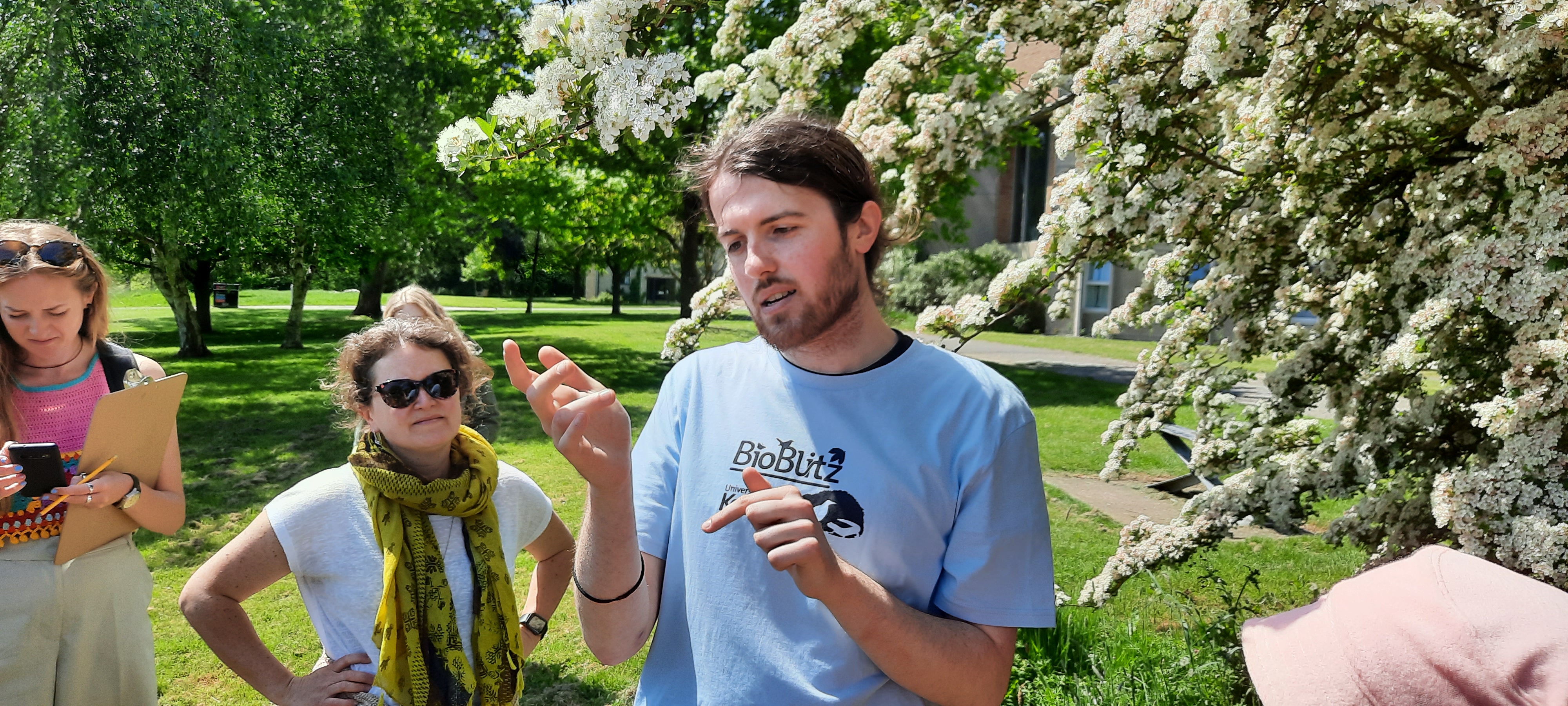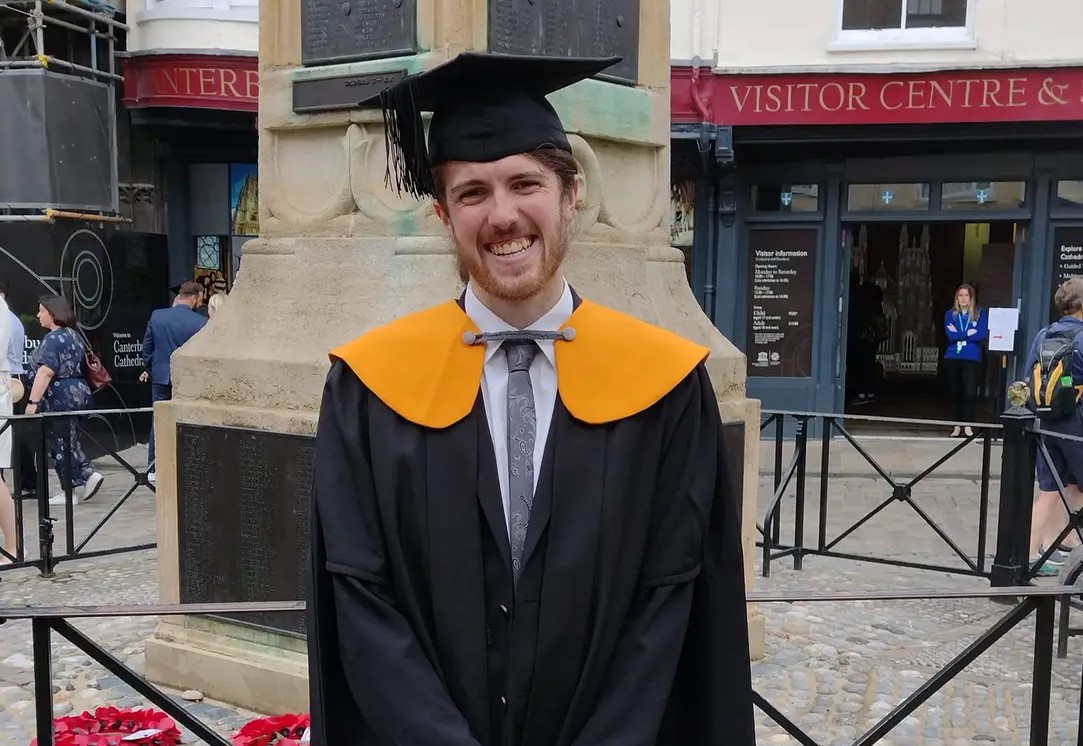
Kieran Richardson is a DICE alumnus, who completed his BSc and MSc with us studying conservation. He is now working as a curatorial assistant at Chester Zoo, involved in projects with some of the most threatened reptiles, amphibians and invertebrates on the planet.
What are your best memories as an undergraduate at DICE?
I first began studying at DICE in 2016, when I started my BSc in Wildlife Conservation. I have many fond memories of living in Parkwood in my first year and exploring the local wildlife, from grass snakes and green woodpeckers in and around Parkwood to the incredible Blean Woods with its heath fritillaries and nightingales and so much more, all within easy walking distance. During my undergraduate degree I was involved in the University’s Conservation Society, eventually serving as its President, I took part in a field trip to the Durrell Wildlife Conservation Trust in Jersey as part of a species conservation module, and conducted my dissertation research at Chester Zoo, on the behaviour of the Critically Endangered Bermuda skink (Plestiodon longirostris). All of these gave me valuable skills and experience which have proven extremely useful in my roles in conservation. I graduated in 2019 with First Class honours.
Why did you choose to study a Master’s?
I decided to continue on to do a Master’s degree at DICE a year after I graduated from my BSc, because a lot of the kinds of conservation jobs I was interested in were listing it as desirable and because I was interested in taking my undergraduate research further. I chose to do my MSc at DICE as the teaching is great, the lecturers have loads of valuable connections and contacts who I’ve found are more than willing to help a student with any questions, and there’s a real sense of community among the postgraduate students – the discount on fees for returning students really helped, too! Therefore, I ended up back in Canterbury in 2020, enrolled onto the Conservation Biology taught MSc course. Despite the challenges posed by the pandemic, I achieved a Distinction in 2021 and was able to attend a delayed graduation ceremony in 2022, after lockdown restrictions had eased.
How did the masters and undergraduate compare?
I’d say, in my experience, that the main difference between studying for a BSc and an MSc is the level of independent study. There was a wider breadth of content than the BSc modules, with the option to study some topics in a lot more detail. You’ll manage your own time a lot more on an MSc course too, and its important to be able to set deadlines for yourself and know how to manage your own workload. While that may sound daunting, it can come surprisingly easily, especially if you’re really interested in what you’re researching! Doing a Master’s is also really useful in conservation because of the connections you are able to form during your studies.
What did you do your Master’s research project on?
My MSc dissertation project was once again on the Bermuda skink, and after I graduated I had the opportunity to go out to Bermuda and take part in a trial release of captive-bred skinks back to the wild there, which was a really incredible experience. My project also directly contributed to me being offered the opportunity of my current role at Chester Zoo!

What are you doing now?
As a Curatorial Assistant at Chester Zoo, I help coordinate the conservation projects and collection of all the ectotherms (reptiles, amphibians, invertebrates and fish) at the zoo, assist with research and writing up documents, and discussions with partner organisations on our various conservation projects. This includes helping save some of the World’s most threatened reptiles, amphibians, and invertebrates, including the Bermuda skink, mountain chicken frog (Leptodactylus fallax) and Bermuda land snails (Poecilozonites sp.)! It’s an incredible role that I’m really enjoying after being here 6 months, and really rewarding to genuinely feel like I’m making a difference for these often overlooked and underappreciated species.
Do you have advice for somebody considering doing an MSc in Conservation?
My advice for anyone considering going on to do a Master’s would be, go for it! It’s a great chance to study independently and take a more in-depth look at whatever particular subjects you’re interested in. You’ll make connections and gain unique skills that really don’t pop up as opportunities in any other environment. And with the strong, supportive postgraduate and staff community at DICE, you’re sure to make friends for life- I know I have!




